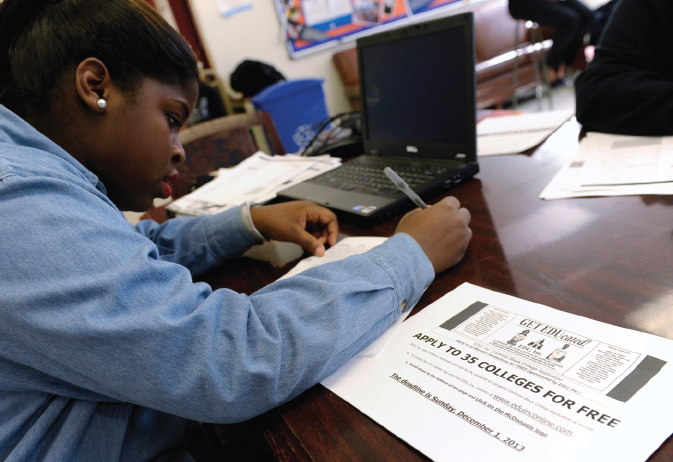UNDERSTANDING PERSONAL STATEMENTS.
UNDERSTANDING PERSONAL STATEMENTS. Institutions that ask for personal statements are rarely interested in who you are. Rather, they want to see whether you can represent yourself as a person with whom they might want to be affiliated. That may seem harsh, but consider the personal statements you have already written. At best, they are a slice of your life — the verbal equivalent of you all dressed up for the prom.
If you want a sense of what a school, business, or other institution expects in the essays it requests from applicants, read whatever passes for that group’s core values or mission statement, often available online. If the words sound a bit solemn, inflated, and unrealistic, you’ve got your answer — except that you shouldn’t actually sound as pretentious as an institution. A little blood has to flow through the veins of your personal statement, just not so much that someone in an office gets nervous about your emotional shape.

Associated Press/Susan Walsh.
Hitting the right balance between displaying overwhelming competence and admitting human foibles in a personal statement is tough. Here’s some advice for composing a successful essay.
Read the essay prompt carefully. Essay topics are often deliberately open-
Don’t repeat in your personal statement what’s already on record in an application letter or résumé. Instead, look for incidents that will bring your résumé lines to life. If the prompt encourages personal reminiscences (e.g., the person who influenced you the most), think hard about how to give your story a clear direction.
feeling lost?
Decide on a focus or theme. Personal statements are short, so make the best use of a reader’s time. Don’t ramble about summer jobs or vague educational opportunities. Instead, find a theme that focuses on the strongest aspects of your application. If you’re driven by a passion for research, arrange the elements of your life to illustrate this. If your best work is extracurricular, explain in a scholarship application how your specific commitments to people and organizations make you a more well-
Above all be honest and forthright. Here’s good advice from a woman who worked with high school students who were composing college admission statements:
In my years handling applications to elite schools, from Harvard to Haverford, Davidson to Dickinson and everything in between, I was often surprised by where students did gain acceptance. But in every case it was a student who wrote a fabulously independent essay. Not necessarily hyper-
My students always asked me, What should I write about?
I’d answer: You are a student of the world. What is it that moves you? What incites you, enrages you? The first-
I have had successful students write about the virtues of napping (Middlebury), failing a course (Harvard), and having to shoot a farm dog because it couldn’t work stock (Princeton). Once a student came out to me in his fifth (and best) draft. His parents probably still don’t know, but they got the Ivy Leaguer they wanted (Penn).
— Lacy Crawford, “Writing the Right College-
When you apply for professional programs, scholarships, and internships, your audiences will be different, but the basic principles outlined here still hold.
Be realistic about your audience. Your personal statements are read by strangers. That’s scary, but you can usually count on them to be reasonable people willing to give you a fair hearing. They measure you against other applicants — not unreachable standards of perfection. How might youovercome the initial anxiety? Experienced writing tutor Jacob Pietsch suggests that you address a statement to a real person in your life who doesn’t know you very well: “Visualize them, and get ready to write them a letter.”
Organize the piece strategically. Many personal statements take a narrative form, though they may also borrow some elements of reports and even proposals. Malia Hamilton, a writing center consultant, offers a structure to consider: “Whenever I read a personal statement, I look to see if the writer has told me three things: (1) who they were, (2) who they are, and (3) who they want to be. If the writer has effectively incorporated these three stages of themselves into their personal statement, it’s almost always an effective one.” Whatever structures you adopt for your essay, pay attention to transitions: You cannot risk readers getting confused or lost. (connect ideas)
Try a high or middle style. You don’t want to be breezy or casual in an essay for law school or medical school, but a personal statement does invite a human voice. So a style that marries the correctness and formal vocabulary of a high style with the occasional untailored feel of the middle style might be perfect for many personal statements. (define your style)